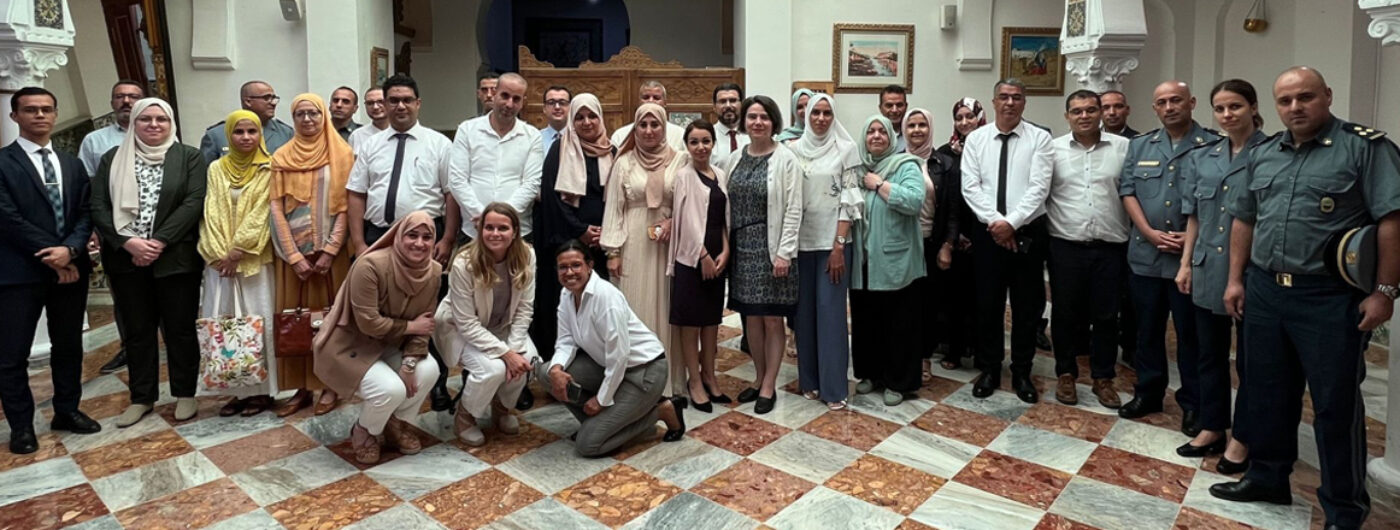
UfM Workshops on rules of origin schemes to government, private sector and other relevant stakeholders in Algeria
16-17 July 2023, Algiers – The UfM with the support of the German Development Cooperation organized two workshops for Government and Private Sector stakeholders respectively in Algiers, each consisting of a basic course on Rules of Origin, transitional rules as well as information on specific Harmonized System Codes for the respective industries under the most pertinent agreements, including through training exercises.
The workshops encompassed a training module for responsible staff officers from the Government with a more extensive conceptual and legal focus on the concept of rules of origin, in order to facilitate the stakeholder consultation process when conducting trade negotiations. In addition, rules of origin handbooks were developed, and specific coaching sessions were organized for the Government and private sector stakeholders in Algeria on the practical use of these handbooks. The UfM was represented by Mohammed Elrazzaz from the Economic Development and Employment Division, in addition to Alicia Figueroa and Cristina Costa from GIZ.
The two workshops brought together a total of 80+ participants from the Algerian Government and from the Private Sector over two successive days. The workshops were inaugurated by a representative from the Algerian Ministry of Trade and Exports, followed by welcoming remarks and an introduction to the concept of the trainings by Figueroa and Elrazzaz.
The trainings were structured in a way that flowed from the basic rules of origin concepts to the more specific concepts of the Pan-Euro-Mediterranean Convention and its relation to both preferential and transitory rules of origin.
The trainings used practical case-studies drawn across different countries and economic sectors and pertaining to different product types in order to explain how the Pan-Euro-Mediterranean Convention works under different situations. The participants were invited to work out the case-studies, which were then resolved by the trainer by way of explaining the correct application of the rules of origin.
The participants welcomed the trainings and expressed their interest both in the content and the approach, given the complexities of the rules of origin and the need to comprehend their particularities in practice. Active interaction with the trainer allowed for discussions and exchanges, with a session dedicated fully to questions and answers by the end of each workshop.

